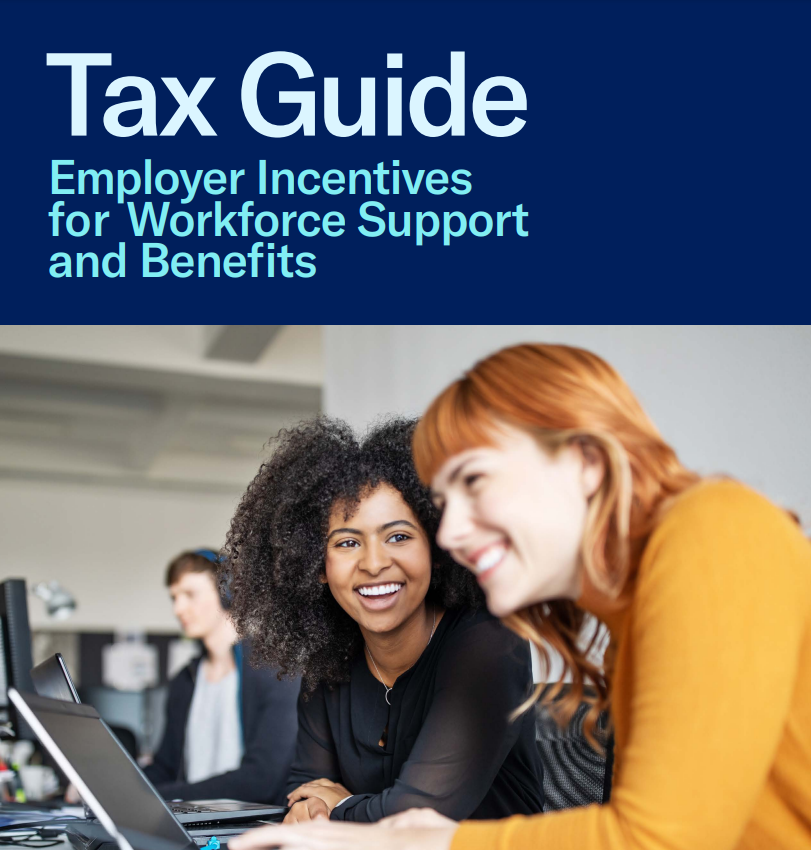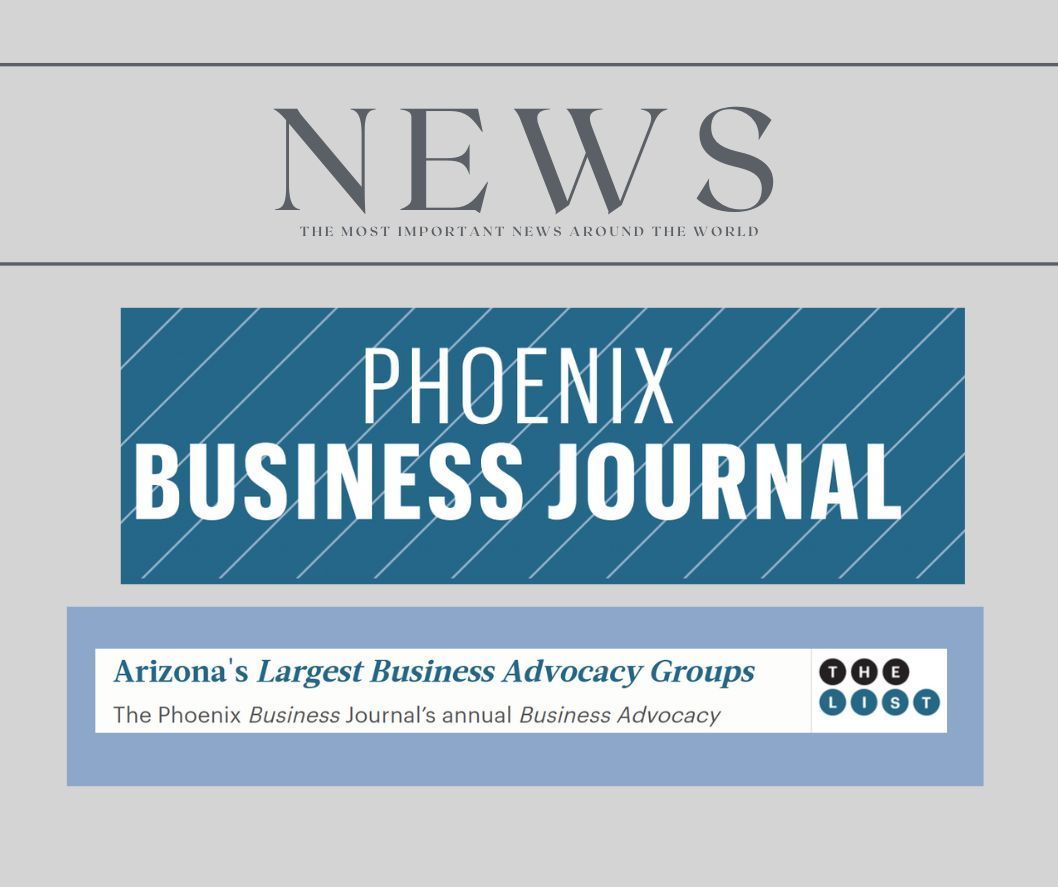2024 Tax Guide: Unlock Hidden Tax Benefits for Your Small Business!
Discover the Hidden Tax Deductions for Small Business Owners!

Most small business are not aware of all credits and deductions available to employers. Please feel free to share with other business owners.
Explore The New Tax Guides (PDF)
The U.S. Chamber has created new tax guides that offer educational information on potential tax credits and deductions accessible to employers regarding their workforce. These benefits may be available for employers providing childcare, hiring individuals encountering specific barriers to employment, establishing accessible workplaces, and offering various benefits such as deferred compensation and other welfare benefit plans to employees. Feel free to share these guides with your members.
Details:
Download all the guidelines to learn the details: What are the parameters? Who is eligible? What are eligible access expenditures? How do I claim this credit?
Download Guidelines
Differential Wage Payment Credit
The Differential Wage Payment Credit, or the Employer Wage Credit for Employees Who are Active-Duty Members of the Uniformed Services, is an employer tax credit equal to 20% of the sum of eligible differential wage payments (not to exceed $20,000) for each of the taxpayer’s qualified employees.
Disabled Access Credit
The Disabled Access Credit provides a non-refundable credit of up to $5,000 for small businesses that incur expenditures for the purpose of providing access to persons with disabilities.
Tax Benefits for Businesses Who Have Employees with Disabilities
The Employer-Provided Childcare Credit can save employers with eligible expenses more in taxes than using a deduction alone, and employees can exclude some childcare benefits from their taxable wages. For employers, the credit can offset actual federal income tax liability.
Employer Credit for Paid Family and Medical Leave
This is a tax credit for employers who provide paid family and medical leave to their employees. Eligible employers may claim the credit, which is 25% of wages paid to qualifying employees while on family and medical leave.
Disclaimer: The Employer Credit for Paid Family and Medical Leave is set to expire on December 31, 2025. Eligible employers may only claim this credit with respect to wages paid to qualifying employees through the end of 2025.
Employer-Provided Childcare Credit
*This material has been prepared for general informational purposes only; it is not intended to provide, and should not be relied on for, legal or tax advice. Please consult an attorney or a qualified tax professional for more information.
Credit for Employer Social Security and Medicare Taxes Paid on Certain Employee Tips
The Credit for Employer Social Security and Medicare Taxes Paid on Certain Employee Tips is an employer tax credit for eligible food and beverage establishments to claim a credit for Social Security and Medicare taxes paid on employee’s tips.
Empowerment Zone Employment Credit
Employers can claim an empowerment zone employment credit for 20% of wages paid (up to $15,000) to qualified employees who work and reside in empowerment zones.
Disclaimer: The Empowerment Zone Employment Credit is set to expire on December 31, 2025. Accordingly, this credit is only available for qualifying employers on applicable wages through December 2025.
Military Spouse Retirement Plan Eligibility Credit for Small Employers
The Military Spouse Retirement Plan Eligibility Credit for Small Employers, also known as the Military Spouse Participation Credit, is a general business tax credit for immediately including military spouses in their defined contribution plan.
Small Employer Health Insurance Credit
The Small Employer Health Insurance Credit, also known as the Small Business Health Care Tax Credit, helps eligible small employers provide health insurance coverage for their employees. In general, this tax credit is up to 50% of the health insurance premiums paid for health insurance coverage under a qualifying arrangement.
Small Business Health Care Tax Credit and the SHOP Marketplace
Small Employer Pension Plan Startup Cost Credit
The Small Employer Pension Plan Startup Cost Tax Credit is a tax credit for eligible employers of up to 50% of the ordinary and necessary costs of starting a retirement plan for small businesses (e.g., a Simplified Employee Pension, or a Savings Incentive Match Plan for Employees).
Retirement Plans Startup Costs Tax Credit
Disclaimer: An eligible employer may not deduct the startup costs and claim the credit for the same expense.
*This material has been prepared for general informational purposes only; it is not intended to provide, and should not be relied on for, legal or tax advice. Please consult an attorney or a qualified tax professional for more information.
Back to top
Small Employer Retirement Savings Auto-Enrollment Credit
The Small Employer Auto-Enrollment Credit is a tax credit for eligible small employers that includes an eligible automatic contribution arrangement in a qualified employer plan.
Work Opportunity Tax Credit
The Work Opportunity Tax Credit (WOTC) is a tax credit available to employers for hiring individuals from certain targeted groups who have consistently faced significant barriers to employment. This tax credit is unique because it is jointly administered by the IRS and Department of Labor.
The WOTC is currently set to expire on December 31, 2025. Employers will only be eligible to claim this tax credit through the end of 2025.
Work Opportunity Tax Credit
*This material has been prepared for general informational purposes only; it is not intended to provide, and should not be relied on for, legal or tax advice. Please consult an attorney or a qualified tax professional for more information.
Architectural Barrier Removal Tax Deduction
The Architectural Barrier Removal Tax Deduction encourages businesses of any size to remove architectural and transportation barriers to accommodate the mobility of people with disabilities and the elderly.
Tax Benefits for Businesses Who Have Employees with Disabilities
*This material has been prepared for general informational purposes only; it is not intended to provide, and should not be relied on for, legal or tax advice. Please consult an attorney or a qualified tax professional for more information.
Employer Contribution-Related Tax Deductions
Employers may be eligible for a tax deduction by offering retirement savings and other benefits for the welfare of their employees. Specifically, employers may be able to claim a tax deduction for (i) employer contributions to deferred compensation plans, (ii) welfare benefit plans, and (iii) employer liability trust plans.
Tax Deduction for Trade or Business Expenses
Businesses may be allowed a tax deduction for trade or business expenses. In general, the deduction for trade or business expenses permits taxpayers to deduct ordinary and necessary expenses that are paid or incurred in carrying on a trade or business.


